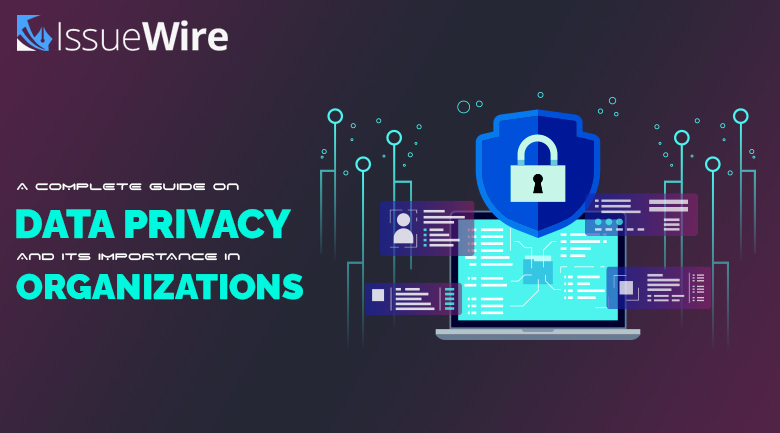The knowledge or general understanding of data privacy has always been present around us especially in the digital world. Information safety is one of the biggest compromises out there. Many people fail to understand its importance and how a small breach can affect them personally or a company to the largest of extents. Nowadays, with banking and every other functional sphere turning into its digital counterpart, the importance of data privacy is all the more crucial.
From organizational perspectives, a company’s inventory has thousands and millions of data of customers that need to be kept private in order to keep their identities protected from intruders. This also determines the image and reputation of the company. However, it should also be remembered that data privacy is not just constricted to business. If an individual is using the internet, their personal information may be at stake without it. Having a profound knowledge of the same helps a person keep themselves protected from an array of risks.
What is Data Privacy?
Data privacy, as the term suggests defines the capacity of a person or an organization to determine the extent of personal data and information that can be shared with others. Personal information or data may comprise of different components from something as common as name, contact, or location as well as something bigger like online behavior. Thus, data privacy keeps a person on the internet safe from hackers or impersonators. It is also extremely crucial to keep organizational information within the company. Many individuals want to control personal data and hence, avails data privacy functionalities for general safekeeping.
Data privacy is defined by how information should be handled as per its relative significance. In the digital world, the implementation of data privacy is critical to the safekeeping of personal information. This is also called personal health information or PHI or personally identifiable information or PII. Information such as medical records, bank details, social security numbers, financial data, address, and more if lost is classified as a potential data leak. The sensitivity of information is subjective and varies from person to person or organization. However, data privacy in a business is not just constricted to its customers and employees. It also includes volumes of information about the company itself, its trade secrets, budgets, profits, R&D files, financial information, investments, and more.
Why is it important?
It is very evident that data that is meant to be kept private goes out to the wrong hands, the result is very risky. For example, if a data breach occurs in a government agency and if it reaches the hands of an enemy, the consequences are dangerous not just for the company but for the whole state. Even a data breach in a corporation can leak data to competitors. A breach in a school can lead to identity theft whereas that in a hospital may lead to misuse by an enemy or imposter with malicious goals.
Many jurisdictions consider data privacy as a fundamental right. They have laws that guard that right. With online activities on the exponential rise, it has become more crucial.
One may misuse data in many ways that include:
- Criminal activities of fraud, harassment, and impersonation
- Selling of personal data to external parties in exchange for money of promotion
- Restriction of free expressions
There is more to it but any type of data breach can cause a risk. In most cases, there is legal guidance to support the importance of data privacy, and actions are taken otherwise.
Tips to protect data
Data privacy is a crucial issue and hence, organizations, businesses, and companies spend millions of dollars to keep their data protected. However, when it comes to the average person, the scale may be smaller but risks run equally in this case as well.
Here are some of the tips to safeguard your data in the daily scope of life.
- Using a locking or slot mailbox is the most rudimentary practice of data protection barring thieves from stealing your mail
- All documents meant to be discarded should be shredded especially financial reports
- A secure Wi-Fi network is a good way to protect personal data so that no intruder can track your online activity
- Stay wary of safeguarding your Social Security Number. Even if someone asks for it, make sure that there is no malicious motive behind it. Identity theft is one of the most common risks of a data breach
- All online accounts must be protected with strong passwords so that penetrating them becomes difficult for criminals
Conclusion
If you are active online, you must revisit the privacy setting on all your social media handles to set some type of encryption or protection. Organizations must be extremely aware of their data protection services so that no one can penetrate their system and pose a risk.








